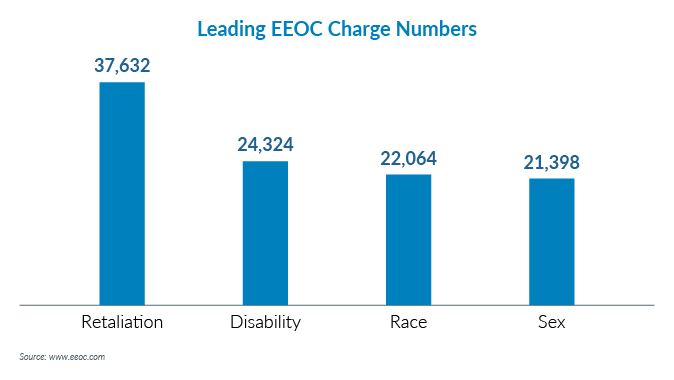-
Property & Casualty
Property & Casualty Overview

Property & Casualty
We offer a full range of reinsurance products and the expertise of our talented reinsurance team.
Expertise
Publication
Florida Property Tort Reforms – Evolving Conditions
Publication
Is Human Trafficking the Next Big Liability Exposure for Insurers?
Publication
When Likes Turn to Lawsuits – Social Media Addiction and the Insurance Fallout
Publication
Generative Artificial Intelligence and Its Implications for Weather and Climate Risk Management in Insurance
Publication
Engineered Stone – A Real Emergence of Silicosis
Publication
Who’s Really Behind That Lawsuit? – Claims Handling Challenges From Third-Party Litigation Funding -
Life & Health
Life & Health Overview

Life & Health
We offer a full range of reinsurance products and the expertise of our talented reinsurance team.

Publication
Understanding Physician Contracts When Underwriting Disability Insurance
Publication
Voice Analytics – Insurance Industry Applications [Webinar]
Publication
GLP-1 Receptor Agonists – From Evolution to Revolution U.S. Industry Events
U.S. Industry Events
Publication
Always On: Understanding New Age Addictions and Their Implications for Disability Insurance
Publication
Dying Gracefully – Legal, Ethical, and Insurance Perspectives on Medical Assistance in Dying -
Knowledge Center
Knowledge Center Overview

Knowledge Center
Our global experts share their insights on insurance industry topics.
Trending Topics -
About Us
About Us OverviewCorporate Information

Meet Gen Re
Gen Re delivers reinsurance solutions to the Life & Health and Property & Casualty insurance industries.
- Careers Careers
The EEOC’s 2020 Employee Charges and Emerging Issues

March 29, 2021
Alice Zelikson,
Jeffrey Weisel
Region: North America
English
The 2020 numbers from the U.S. Equal Employment Opportunity Commission (EEOC) were recently released. There were 67,448 charges of workplace discrimination made to the agency in the 2020 fiscal year.1 That’s a decline from 2019’s 72,675 charges, possibly due to the COVID‑19 pandemic affecting employment.
The EEOC legal staff resolved 165 merits lawsuits and filed 93 lawsuits alleging discrimination in FY 2020. Through litigation, the EEOC recovered just over $106 million for charging parties and other aggrieved individuals, representing the largest recovery through the EEOC’s litigation program in the past 16 years. The EEOC achieved a successful outcome in 95.8% of all district court resolutions.
Once again, retaliation leads the charges with an astounding 55.8% of all charges filed - followed by disability, race and sex.

The other charges are broken down as follows:
- Age: 14,183 (21.0%)
- National Origin: 6,377 (9.5%)
- Color: 3,562 (5.3%)
- Religion: 2,404 (3.6%)
- Equal Pay Act: 980 (1.5%)
- Genetic Information: 440 (0.7%)
The EEOC notes that their percentages add up to more than 100% because some charges allege more than one category of discrimination.
COVID’s Impact
According to a recent EEOC press release,
“Chair [Charlotte] Burrows pointed out the COVID‑19 pandemic and the resulting recession has made life more difficult for America’s workers in many ways...
‘The current pandemic is not only a public health crisis and an economic crisis - it’s also a civil rights crisis,’ Burrows said. ‘COVID‑19 and its economic fallout is disproportionately impacting people of color, women, older workers, individuals with disabilities, and other vulnerable workers, and that impact has serious implications in the workplace.’ Burrows added, ‘EEOC's role is more critical now than ever when so many workers are overwhelmed with basic survival. The EEOC will continue to do what it always has - meet new challenges and overcome new obstacles to serve the American people.’”2
According to Janet Dhillon, EEOC Chair on National Origin and Race Discrimination, “Crises like the COVID‑19 pandemic can bring out the best and worst in people. Sadly, there have been reports of mistreatment and harassment of Asian Americans and other people of Asian descent. In the workplace, these actions can result in unlawful discrimination on the basis of national origin or race.”3
We can expect the EEOC will be focused on discrimination of Asian Americans and others of Asian descent in the coming year.
EEOC Initiatives
According to an EEOC press release, “In fiscal year 2020, Chair Dhillon established the Vulnerable Workers Task Force to ensure that the agency effectively identifies, reaches, and serves vulnerable workers throughout the nation’s workforce. To successfully accomplish this goal, the Task Force is re‑examining issues involving outreach and education, strategic partnerships, research and data, accessibility, and internal collaboration and support. This will increase support for vulnerable worker populations nationwide, improve the way for vulnerable workers in remote locations, and reach those with low literacy and limited English proficiency, among others.”4 This will be a focus of the EEOC for 2021.
Issues Emerging Today
As employees return to the workplace in 2021, we anticipate seeing a plethora of claims related to COVID‑19, including privacy and retaliation issues. In addition, we expect to see employees bringing forth claims based upon national origin and religious discrimination.
One area in particular to watch is whether employers can require that employees be vaccinated. On December 16, 2020, the EEOC issued revised guidance, noting that generally, employers can mandate vaccination. However, various conditions must be met in order for it to be lawful. (See Jill Tumney’s recent blog.) This will likely play out in the courts over the remainder of this year and beyond.
We are also monitoring whether the #metoo movement will continue to encourage additional individuals to file sexual harassment charges against employers from Main Street to Hollywood. In 2020, 6,587 charges alleging sexual harassment were filed (down from 7,514 in 2019). Of the 6,587 charges, 16.8% were brought by males.
What all of this will mean for workers and future EEOC enforcement priorities will be answered in 2021 and beyond. Our EPLI team will be watching closely and sharing insights on how the new landscape affects insurers.
Endnotes
- Employee charge and other statistics from U.S. Equal Employment Opportunity Commission, www.eeoc.gov
- EEOC Press Release, 2/26/2021, https://www.eeoc.gov/newsroom/eeoc-releases-fiscal-year-2020-enforcement-and-litigation-data
- Message From EEOC Chair Janet Dhillon on National Origin and Race Discrimination During the COVID‑19 Outbreak, 3/30/2020, https://www.eeoc.gov/wysk/message-eeoc-chair-janet-dhillon-national-origin-and-race-discrimination-during-covid-19
- EEOC Press Release, 2/4/2020, https://www.eeoc.gov/vulnerable-workers-task-force






